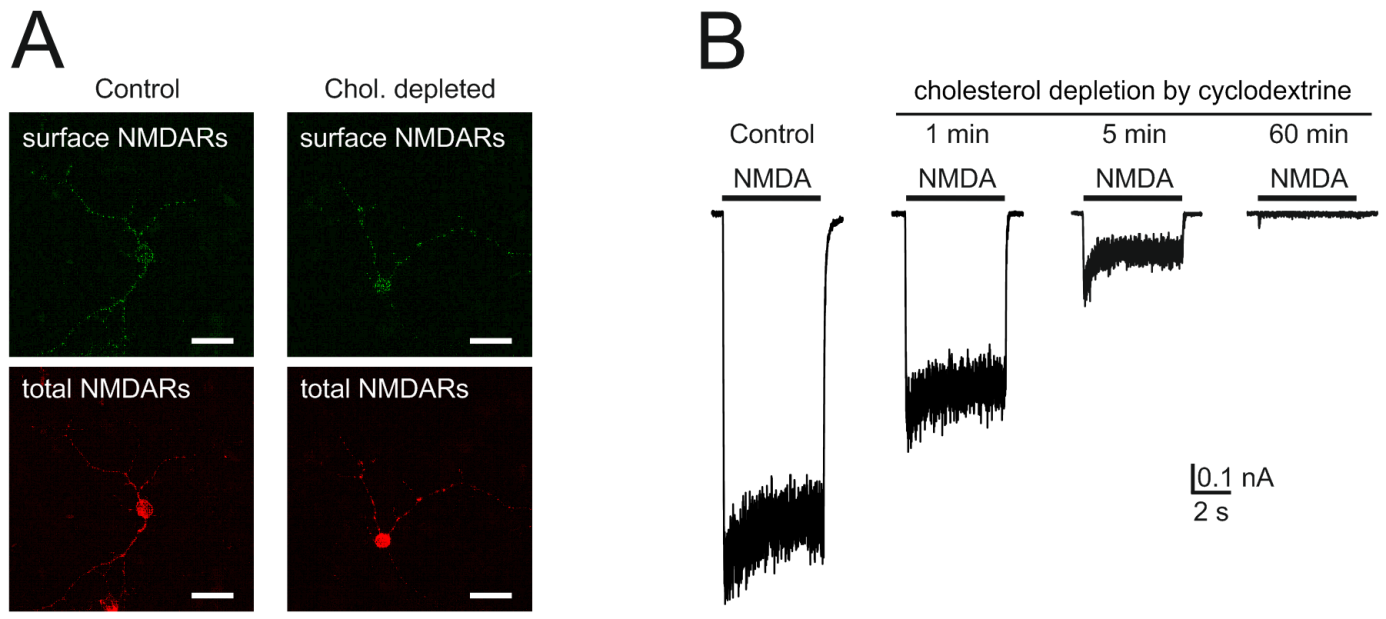Influence of membrane lipids on NMDA receptor function
Dragana Hajdukovic, Miloslav Korinek
NMDA receptors are integral membrane proteins whose function can be influenced by the composition of the cytoplasmic membrane. We have discovered that cholesterol, an important structural component of the membrane, has a robust modulatory effect on NMDA receptors. Specifically, cholesterol depletion from the membrane strongly inhibits NMDA receptor function and glutamatergic synaptic transmission. This is consistent with evidence that cholesterol depletion protects neurons from glutamate excitotoxicity. Moreover, it was reported that cholesterol manipulation in neuronal cultures modulates long-term potentiation. Our current experiments aim to further characterize the molecular mechanism of NMDA receptor modulation by cholesterol, and to clarify the influence of cholesterol on glutamatergic synaptic transmission. This project will greatly improve our understanding of the role of cholesterol in neurons, particularly as it relates to synaptic transmission and excitotoxicity.

Immunocytochemical staining and electrophysiological recordings illustrating that cholesterol depletion has minimal influence on the surface expression of NMDA receptors (A), while drastically inhibiting NMDA receptor function (B).
